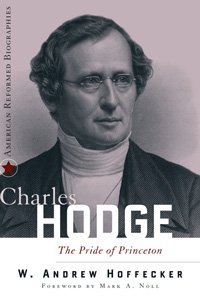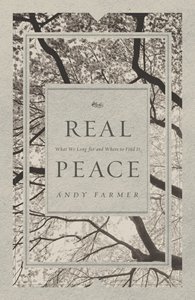I love reading books, but I also love reading reviews of books. Reviews allow me to discover books I haven’t heard of, they teach me to think wisely, they allow me to better prioritize the books I am considering reading, and they sometimes provide a helpful second opinion on books I have already read. For all of those reasons I publish occasional round-ups of reviews written by other writers. Here are a few notable links I’ve collected recently:
 Charles Hodge: The Pride of Princeton by W. Andrew Hoffecker. Reviewed by David Steele. “Who says reviews don’t matter? ‘I could not put Hoffecker’s book down.’ Seven simple words uttered by Dr. John Frame prompted me to pick up Charles Hodge: The Pride of Princeton by W. Andrew Hoffecker. The author makes a solid contribution in P & R’s American Reformed Biographies Series. … Charles Hodge is a model of teaching excellence. He is a worthy example of what it means to stand for the truth in a dark world. Young pastors and seasoned pastors alike would do well to emulate the courage and conviction of the Pride of Princeton – Charles Hodge.” (Learn more or buy it at Amazon or Westminster Books)
Charles Hodge: The Pride of Princeton by W. Andrew Hoffecker. Reviewed by David Steele. “Who says reviews don’t matter? ‘I could not put Hoffecker’s book down.’ Seven simple words uttered by Dr. John Frame prompted me to pick up Charles Hodge: The Pride of Princeton by W. Andrew Hoffecker. The author makes a solid contribution in P & R’s American Reformed Biographies Series. … Charles Hodge is a model of teaching excellence. He is a worthy example of what it means to stand for the truth in a dark world. Young pastors and seasoned pastors alike would do well to emulate the courage and conviction of the Pride of Princeton – Charles Hodge.” (Learn more or buy it at Amazon or Westminster Books)
Deep and Wide: Creating Churches Unchurched People Love to Attend by Andy Stanley. Reviewed by Carl Trueman. “With so much promising material, where should one start the critique? Perhaps with the unintended irony of a man warning his readers about feeling superior while at the same time assuring them that he has better insight into the way their spouses and congregations think than they do? Or with the odd way in which he berates his audience for making the mistake of assuming that other people are just like them rather than realizing that they are actually all just like Andy Stanley? Sorry to – as you would put it – ‘burst your bubble’, Andy, but the people I know are not on a happiness quest. I suspect they are not that ambitious: they simply want to find a decent bottle of cognac so that they might temporarily dull the pain of existence with a little touch of old world class. At least, I have always assumed they are just like me.”
 Real Peace: What We Long For and Where to Find It by Andy Farmer. Reviewed by Lindsey Carlson. “Peace is valuable commodity these days. With our always-on-the-go lives, we all want peace, strive to find it, would pay for it if we could, but rarely seem to grasp it. Living with a house full of noisy little people and one very musical (read, loud) husband, peace is a rare treat in my world. But even when I manage to slip away for a day or two, I find the simple respite from the hustle and bustle of my daily life isn’t true peace, it’s only quiet. During a recent vacation, I picked up Andy Farmer’s book Real Peace: What We Long For and Where to Find It, and was blessed when it knocked down many of the straw-men in my life that have been parading themselves as peace. Perhaps you could also stand to question the types of things which bring you fake-peace…” (Learn more or buy it at Amazon or Westminster Books)
Real Peace: What We Long For and Where to Find It by Andy Farmer. Reviewed by Lindsey Carlson. “Peace is valuable commodity these days. With our always-on-the-go lives, we all want peace, strive to find it, would pay for it if we could, but rarely seem to grasp it. Living with a house full of noisy little people and one very musical (read, loud) husband, peace is a rare treat in my world. But even when I manage to slip away for a day or two, I find the simple respite from the hustle and bustle of my daily life isn’t true peace, it’s only quiet. During a recent vacation, I picked up Andy Farmer’s book Real Peace: What We Long For and Where to Find It, and was blessed when it knocked down many of the straw-men in my life that have been parading themselves as peace. Perhaps you could also stand to question the types of things which bring you fake-peace…” (Learn more or buy it at Amazon or Westminster Books)
Engaging With Keller: Thinking Through the Theology of an Influential Evangelical, edited by Iain Campbell. Reviewed by Rachel Miller. “Keller adopts a twofold answer to many questions. He wants to present doctrine to the “moderns” (usually older, more rural and less educated) one way, and to the ‘postmoderns’ (usually younger, more urban and educated) in a different way. Keller’s presentations to the moderns is essentially old-fashioned orthodoxy, whereas his answer to the postmoderns include some of his most well-known – and often most controversial – teachings. This books is almost exclusively concerned with this latter group of teachings.” (Learn more or buy it at Amazon)
 What Every Pastor Should Know: 101 Indispensable Rules of Thumb for Leading Your Church by Gary L. McIntosh & Charles Arn. Reviewed by Matt Felton. “Generally speaking, the book is full of wise ‘street knowledge’ for any and all leaders, and that includes pastors. The authors straightforwardly endorse longer pastorates where possible, going so far as to question and even deflate some of the more typical justifications for switching pastorates (173-176). In the same vein, the authors rightly warn against some of the unique and deadly temptations that senior pastors often face … Practical ministry guides can never be a-theological. Orthopraxy is critical, but it can’t ever be separated from orthodoxy. For better or for worse, theology will always fuel practice, even when you claim to have no theology, which is just bad theology. Unfortunately, though the authors typically steer clear of theological grit, too many of the practical principles in this book betray an unstable theological foundation, namely, the false equation of ‘Growth = Health’.”
What Every Pastor Should Know: 101 Indispensable Rules of Thumb for Leading Your Church by Gary L. McIntosh & Charles Arn. Reviewed by Matt Felton. “Generally speaking, the book is full of wise ‘street knowledge’ for any and all leaders, and that includes pastors. The authors straightforwardly endorse longer pastorates where possible, going so far as to question and even deflate some of the more typical justifications for switching pastorates (173-176). In the same vein, the authors rightly warn against some of the unique and deadly temptations that senior pastors often face … Practical ministry guides can never be a-theological. Orthopraxy is critical, but it can’t ever be separated from orthodoxy. For better or for worse, theology will always fuel practice, even when you claim to have no theology, which is just bad theology. Unfortunately, though the authors typically steer clear of theological grit, too many of the practical principles in this book betray an unstable theological foundation, namely, the false equation of ‘Growth = Health’.”










